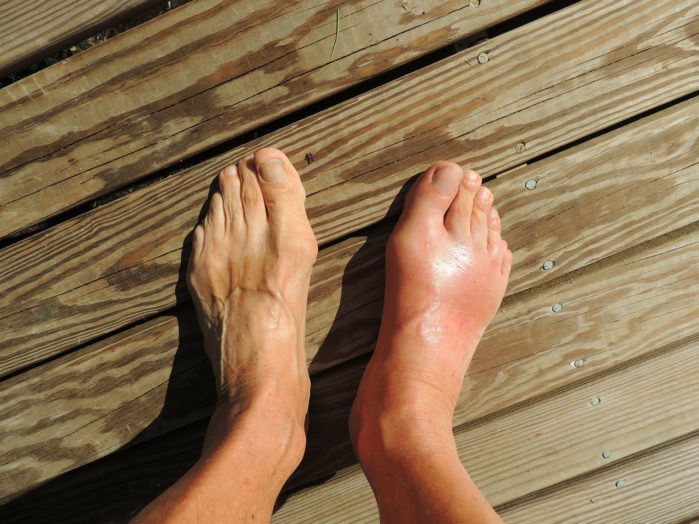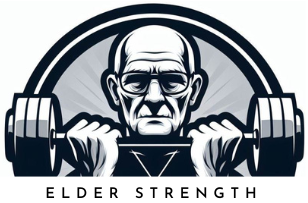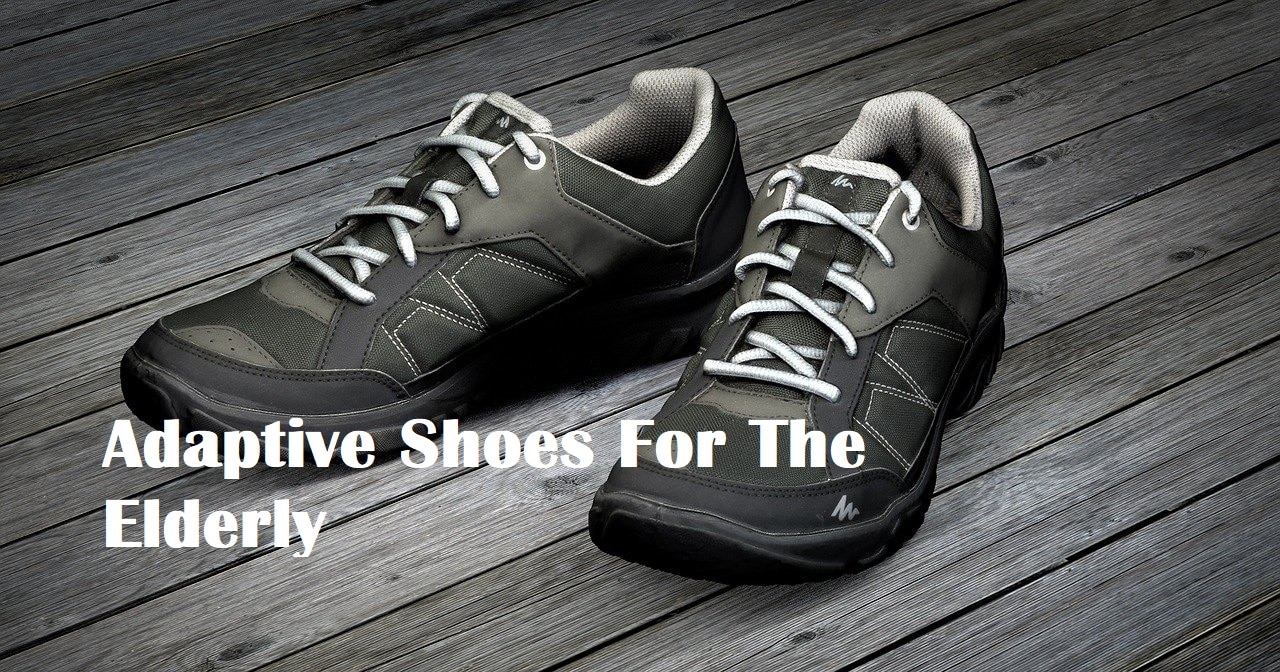In this simple guide, we will look at adaptive shoes for the elderly. Adaptive shoes are comfortable to wear even with swollen and inflamed feet.
Getting older can cause changes in your feet that make wearing regular shoes uncomfortable. There are special adaptive shoes for the elderly that allow you to keep active even with foot issues like swollen feet.
Affiliate disclaimer: This article contains affiliate links to online stores. If you buy through them, I will earn a small commission with no extra cost to you. It really helps to keep the site running!
In a hurry? Here are the winners after several hours of research
Adjustable Edema Slippers
- For Swollen Feet
- Very Comfortable
- Afforadable
Propet Scandia Slip-Ons
- Elegant Men’s Shoe
- Roomy and Stable
- Perfect For Diabetic feet or Parkinson’s
BIZAR Diabetic Sneaker
- Elegant Women’s Shoe
- Roomy and Stable
- Perfect For Diabetic feet or Parkinson’s
What Are Adaptive Shoes For The Elderly
Adaptive shoes are specially designed to be easy to wear and put on with different kinds of foot disorders and disabilities. Aging and several common illnesses can cause foot pain, swelling, and discomfort that these specially designed shoes can relieve.
Ailments like arthritis, diabetes, and gout can all restrict the mobility of your feet and legs. Causing swelling and making using normal shoes a painful experience.
Adaptive shoe is a general term used to describe special shoes that are adapted to issues these illnesses and disabilities cause.
There are special shoes for improving balance and stability. There are shoes for swollen feet. There are shoes that are easy to wear with Velcro straps for seniors with mobility or dexterity problems. There are also adaptive shoes for using an ankle brace or AFO.
Let’s start by looking at the most common foot health issues that seniors face and look at the different kinds of adaptive shoes after that.
Foot health in the elderly
Many older people have issues with their feet. This is due to the fact that as we get older our body deteriorates natural and unfortunately this includes our feet.
Since feet are the part of the body that supports our whole body weight they have to handle a lot more external stress than other parts of our body.
The feet consist of a complex structure of bones, cartilage, tendons, muscles, veins, nerves, lymphatic tissue and skin that all can suffer ailments from aging.
To make matters worse our feet are at the furthest point of our heart with the whole pressure of our body compressing them. This means that the blood and lymphatic fluid circulation of the feet face a lot of challenges and can be easily compromised.

Aging takes a toll on your feet
Even if you don’t have any actual illnesses that affect your feet, aging can cause swelling, pain and problems with blood circulation and cramps in your feet. The soles of your feet can become tender and your toes can hurt and your feet can feel cold all the time.
The best way to keep your feet healthy is by being active, resting enough and massaging the feet daily. Feet are meant to be used and moving around and massaging increases the blood flow and lymphatic drainage, reducing swelling and improving recovery. Resting will allow the tissues to recover from the stress your feet suffer daily.
Strength training is great for improving the circulation of your feet as well as for strengthening the small muscles of the feet.
If you have diabetes, it’s extremely important to keep your blood sugar in range. Elevated blood glucose levels will damage the circulation in your feet which can cause pain, nerve damage, and even gangrene which might require amputation of toes or the whole foot.
If you suffer from gout, it’s very important you adhere to the dietary guidelines your treating physician gives you and avoid things like alcohol.
If you have some other form of arthritis, it’s important to do your best in finding a competent physician that can diagnose the disease correctly and early enough before you have permanent disabilities. And then sticking with the treatment plan and medication.
Adaptive Shoes for the elderly with balance problems
If you suffer from balance problems, it’s important to use proper footwear. Besides using the right kinds of shoes, you can improve your balance by strengthening your legs and core muscles as well as doing specific balance exercises and using a balance board.
If you don’t use appropriate footwear you are setting yourself up for a fall. Falling is a seniors arch enemy that can lead to hospitalization and permanent disability.
To support your stride with balance issues, your shoes need to be stable and slip-resistant. Our recommendation for winter use on icy conditions for seniors with balance issues are Ice Bug shoes which come with built-in ice studs that offer superior grip on icy surfaces.
For summer use a pair of high-quality walking shoes or running shoes are the best option for both stability, lightweight, and grip.
You can learn more about these in the articles Best Running Shoes for Seniors [With Tips!] and Best walking shoes for seniors.
Adaptive shoes for the elderly with swollen feet
Swollen feet and ankle are a common problem in the elderly. They are caused by something called edema which simply means the build of fluid in your tissues. Signs of edema can include swelling of the tissue right under your skin, stretched or shiny skin and skin that retains a pit after being compressed for several seconds.
Because edema of the feet is often caused by severe illnesses like blocked veins of the leg, congestive heart failure, kidney disease, and liver cirrhosis, it’s extremely important you evaluate the situation with your doctor.
There are several not so serious reasons for swelling of the feet as well. These include sitting for too long, eating too much salt and side effects from medication. Common drugs that cause swelling of the feet include steroid drugs, NSAIDs, high blood pressure medications, estrogens, and some diabetes medications.
If you suffer from swollen feet it’s very important to get adaptive shoes that don’t compress your feet and prevent circulation because it can already be compromised as shown by the swelling.
The shoes need to be comfortable enough to allow you to be active and move around because being active is one of the key elements of treating swelling of the feet.
My recommendation for shoes to use with swollen feet are simple wide Edema Slippers with Adjustable Closures
Velcro Adaptive Shoes For The Elderly
If you have mobility issues that make it hard to reach down and tie laces or if you have issues with the functionality of your fingers, Velcro shoes are a much easier and comfortable option. Velcro shoes don’t have to look like medical shoes either, you can find classy and athletic-looking Velcro shoes as well.
Velcro shoes can make it a lot easier to put the shoes on as there are no laces to tie or small zippers to grip and close. You simply open the Velcro tape, slip your foot in and gently press the Velcro with your hand to secure the shoe to your foot.
A good example of a classy Velcro shoe for men are these Propet Scandia strap slip-ons. They are made of real leather and made in the USA and will go well with a suit or jeans.
For the ladies there are super comfortable Velcro shoes like these Bizar Velcro shoes, that will go well with a dress or just for day-to-day use.
Adaptive shoes for AFOs
AFO stands for ankle-foot orthosis. It is an orthopedic device designed to support the ankle and compensate for weakness and injuries. As well as to correct deformities.
They can be used to position a limb with stiff muscles into a correct position or to support a loose limb like in the case of drop foot braces.
AFOs are commonly used to increase postural stability in seniors with ankle issues. AFOs reduce postural sway and improve foot coordination without limiting your ability to perform daily tasks. There is also some data that suggests they can prevent falls in the elderly.
AFOs are typically used only when ankle strengthening exercises and physiotherapy are not effective.
So if your physician or physiotherapist has suggested using an AFO it might be a wise decision to do so if you find that improving strength and balance does not improve your ankle stability enough.
Just remember that using a crutch (metaphorically, in this case, the AFO) will always result in atrophy of the muscles and tissues that are supposed to do the work so rehabilitating them should always be the first line of defense.
If you are using an AFO you have probably realized it can be troublesome with footwear. Depending on the AFO they can take a surprising amount of space. And you might not be able to fit your normal shoes into your feet comfortably.
In this case, it’s wise to invest in adaptive shoes, that are designed to be used with orthopedic support. Generally, any medical shoes that have enough room are usable.
Adaptive Shoes For The Elderly: Frequently Asked Questions
Q: Can I use adaptive shoes as casual shoes even if I don’t have foot problems?
A: Well, of course, you can, but it’s not a good idea. Adaptive shoes are designed to be roomy and they won’t offer as much support as regular shoes. If you are healthy, you should use high-quality walking shoes designed for seniors as your “daily drivers”.
Q: Are walking shoes as durable as regular shoes?
A: That depends on the shoe. Both regular and adaptive shoes come with varying built quality. That said, adaptive shoes are not designed with durability in mind. They are meant for people with disabilities and ailments that will likely reduce their ability to move long distances.
This means it’s more important for the shoes to be comfortable to wear than to be durable. Adaptive shoes will usually have more room and they are stretchy to accommodate swelling so they simply can’t be as durable as more robust shoes.
Q: Can adaptive shoes reduce pain and swelling due to arthritis?
A: Yes. Adaptive shoes can help to reduce the pain caused by swelling in your feet. They do this by reducing compression on the feet. Compression can cause a lot of pain and discomfort if you have medical conditions that affect the feet.
Conclusion
I hope you found my recommendations for adaptive shoes for the elderly useful. I also hope you will find a pair of footwear that suits your special needs. If you have any questions or suggestions, please share them in the comments section below!
Aging can cause many kinds of disconcerting ailments that affect your feet. It’s important to not let this discourage you from being active and exercising to the best of your ability.
By using the correct kind of adaptive footwear you can in many cases make walking much easier and enjoyable. And that’s what should be your main priority in older age, being able to move around independently without too much discomfort.
When you combine proper footwear with strength training, an active lifestyle, and balance exercises, you improve your chances of maintaining your ability to walk freely tenfold.
If you like reading about strength training and health tips for the elderly, please subscribe to my newsletter and bookmark this site. Social shares are appreciated as well!
See you next time!





Thank you for sharing this information. My old man has problems with his legs and feet due to an active sports career. He could benefit from Adaptive shoes. Thanks again. Ivan
Thanks for the comment Ivan! I bet some adaptive shoes might benefit your dad. Depending on his problems, strength training performed the right way can be a great way to alleviate chronic overuse injuries like tendinitis and runners knee.
Awesome. I can get one of these for a family member. Thanks for sharing. Very informative post.
Glad you liked it Yama! These are a great present idea as well as the holidays are just around the corner.